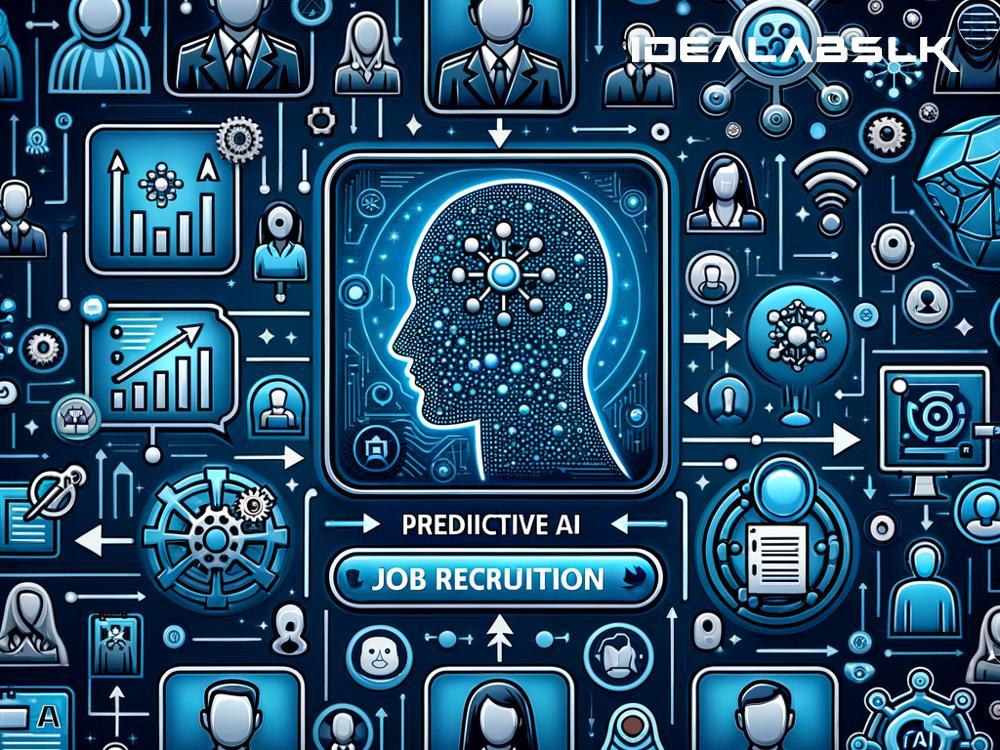How Predictive AI is Changing the Game in Job Recruitment
In today's fast-paced world, finding the perfect job or the ideal candidate can often feel like looking for a needle in a haystack. But what if we had a high-tech magnet to help us in our search? Enter Predictive AI, a cutting-edge technology that's revolutionizing the job recruitment process in ways we've only just started to explore. Let's break down how predictive AI works in job recruitment, making the process simpler, smarter, and a lot more efficient—for businesses and job seekers alike.
Understanding Predictive AI
Before we dive into the intricacies of job recruitment, let's quickly unpack what predictive AI is. In simple terms, predictive AI analyzes vast amounts of data to forecast future outcomes. It’s like having a crystal ball powered by data science. This technology learns from the patterns and trends in the data it processes, improving its predictions over time. When applied to job recruitment, it can identify the best matches between job openings and candidates, think of it as matchmaking based on science.
The How-Tos of Predictive AI in Recruitment
Decoding Job Descriptions and CVs
One of the first steps in the recruitment process is the posting of job descriptions and the submission of resumes (CVs) by candidates. Predictive AI dives deep into this text data, understanding not just the keywords but the context around them. It can analyze job descriptions and match them with CVs that not just fit the bill but potentially excel in the role. This goes beyond traditional keyword matching, assessing the compatibility between a job seeker's experiences and the job requirements in a nuanced way.
Performance Prediction
Imagine being able to predict how well a candidate will perform in a particular role before they even start. Predictive AI makes this possible by examining historical data, such as how candidates with similar profiles have fared in similar roles. This can help employers make more informed hiring decisions, focusing on candidates who are not only a good fit on paper but are also likely to succeed in their new roles.
Reducing Biases
A significant advantage of predictive AI is its ability to help reduce biases in the recruitment process. Traditional hiring can be influenced by unconscious biases, but AI systems can be designed to ignore demographic information, like age, gender, and ethnicity, focusing solely on the candidates’ skills, experience, and potential. This leads to a fairer, more equitable recruitment process.
Enhancing Candidate Experience
Predictive AI can also play a crucial role in improving the experience for job seekers. By analyzing a candidate’s profile, preferences, and past applications, AI can recommend job openings that are a great fit but might have been overlooked otherwise. This not only makes the job search more efficient but also increases a candidate's chances of finding a satisfying job.
Forecasting Future Hiring Needs
On the flip side, predictive AI can help businesses anticipate their future hiring needs by analyzing trends in the market, seasonal demands, and the company's growth trajectory. This foresight allows companies to prepare better, ensuring they have the right talent in place when needed.
The Road Ahead
As with any technology, there is always room for growth and improvement in predictive AI. The more data it processes, the smarter it becomes, making its predictions more accurate and valuable. However, it's crucial to remember that AI is a tool meant to assist, not replace, the human element in recruitment. A balance between high-tech solutions and human intuition can lead to the most effective recruitment strategies.
Final Thoughts
Predictive AI in job recruitment is like having a super-smart assistant that helps you sift through mountains of data to find the gold nuggets—be it the perfect job or the ideal candidate. It streamlines the recruitment process, making it more efficient, fair, and tailored to everyone's needs. As we continue to navigate the future of work, predictive AI stands out as a beacon of innovation, promising a smarter, more inclusive approach to job recruitment.

